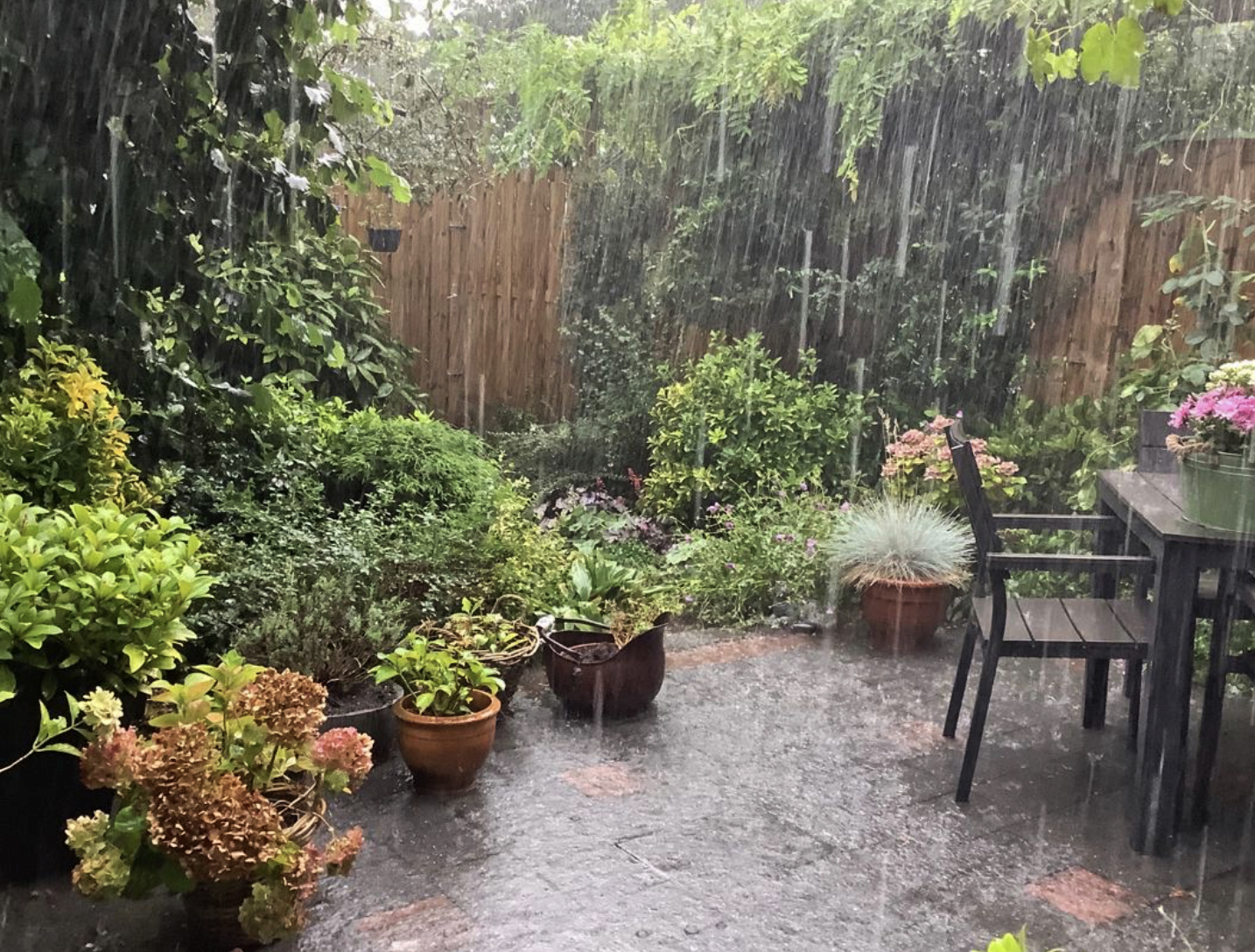When the rain comes...water plants with rainwater
When it rains, vow to collect as much as you can of this precious resource that falls from the sky so you can use it to water the plants in dry times

Rain has been in short supply this year, so let the current dry spell galvanise us to harvest rainwater for our gardens/outside space
When it comes to looking after plants, everyone knows they need sunlight and water. However, some people may not understand the vast benefits rainwater brings to plants. Although (in normal times) it's easy to water the garden using tap water, water from a tap is treated with chemicals that may stunt the growth of certain plants. Rainwater, on the other hand, doesn’t need to be treated before use, it can be used for in as well as outdoor plants, and it's free! Here's short guide to rainwater and why it's excellent for your garden. So get rain dancing folks...
• Rainwater v tap water
Tap water contains dissolved nitrogen and is harder than rainwater. It is more oxygenated, it absorbs carbon dioxide and is slightly acidic. Overall, rainwater is the type of water for plants and it makes gardens thrive.
• Why exactly is rainwater superior?
As mentioned, rainwater is soft water which means it is free from treatment chemicals, minerals and salts. The added extras found in tap water can be detrimental to the health of plants and are not as healthy for soil as soft water. The slightly acidic nature of rainwater is great for plants that require soil with pH levels of 5.5 to 6.5. Tap water is treated so that it does not cause metal pipes to corrode, and so it often contains a pH level of at least 8.5. Finally, rainwater contains the macro nutrient, nitrate, and this form of nitrogen is essential for the development of plants.
• Collecting and storing rainwater
One huge benefit about using rainwater is that it's a free source of water. You can collect and store rainwater using cisterns and rain barrels, and you can use it for your irrigation system to help keep your garden healthy. To collect and store water properly, choose the right water pump for your system. A garden water pump is an excellent choice if you want to spray the garden with rainwater. These pump types include irrigation pumps, rain barrel pumps and hydrophore pumps, and they can be used in combination with a brook or a sprinkler. Alternatively, use rainwater stored in cisterns or rain barrels to water your plants using a watering can by taking it straight from your storage container. Not only is this a simple way to water your outside space with rain water, but it is an easy way to water your indoor plants too.
• Rainwater collected from the rooftop
An easy way to collect water is from your rooftop. This tends to involve water flowing from the gutters down the exit pipes and into a water butt instead of the drain. Naturally, rain water contains sediments which are generally not harmful to plants. However, rainwater that has been exposed to contaminants such as pollen, bird droppings or similar debris is not ideal for plants. Using a rain barrel to store rainwater can help you preserve it so it's beneficial for the garden.